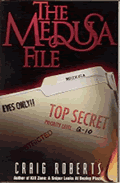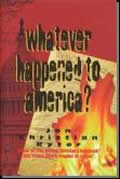Other
Ryter
Articles:
The Two Kerry's:
War Hero or
Traitor?
"Men in Black" The Cult of The Judges
4TH
DC GUN BAN.... BANNED?
By Jon Christian Ryter
March 14, 2007
NewsWithViews.com
On Feb. 10, 2003 five Washington, DC residents: Dick Anthony Heller, Tom G. Palmer, Gillian St. Lawrence, Tracey Anbeau and George Lyon joined Shelly Parker in a lawsuit against then DC mayor Anthony Williams and the District of Columbia for violating their constitutional right to own a "functional" weapon that each feels is necessary to protect them from violence in the second most lethal city in the country. In her lawsuit, Parker noted that she "...resides in a high-crime neighborhood...[and as a] consequence of trying to make her neighborhood a better place to live, Ms. Parker has been threatened by drug dealers. Ms. Parker presently intends to possess a functional handgun within her home for self-defense, but is prevented from doing so only by defendants' active enforcement of unconstitutional policies complained of in this action. Ms. Parker fears arrest, criminal prosecution, incarceration, and fine if she were to possess a functional handgun within her home."
Heller is a uniformed security guard at the Thurgood Marshall Judicial Center next to Union Station. Heller, like most Special Police Officers in DC is licensed to carry a weapon�and carries one while he works. Yet, when he attempted to purchase a handgun for personal security at his DC residence, he was denied a permit to buy one. Gillian St. Lawrence owns a registered shotgun in her DC home. She bought it for protection. However, DC law requires legal weapons to be broken down and stored in a locked case. If someone broke into her home it's not likely St. Laurence would have time to retrieve the weapon, assemble and load it before she became one more DC crime statistic. The other plaintiffs: Palmer, Anbeau and Lyon wanted to purchase handguns for protection but they were prohibited from doing so by DC Code � 7-2502.01(a). Under section .12, registration certificates for handguns (weapons designed to be fired by one hand) could not be issued to any private citizen after September 24, 1976.
Law-abiding DC citizens caught trying to protect their home and families by owning a firearm purchased lawfully elsewhere will be charged with a misdemeanor that carries a stiff penalty�a $1,000 fine and/or imprisonment for up to one year. A second offense is a felony that carries a fine of $5,000 and/or a prison term of up to five years.
Shelley and her co-plaintffs went to court in the US District Court in Washington, DC. The US District Court for DC ruled in favor of the DC government, stating that the 2nd Amendment does not bestow any rights on individuals except, perhaps, when an individual serves in an organized militia such as today's National Guard. Based on that argument, the US District Court found for the Defendants, Mayor Anthony Williams and the District of Columbia. Further the court found that since the plaintiffs had "...not yet suffered an injury-of-fact because they did not possess what they termed as functional handguns," they lacked "constitutional standing" to file their lawsuit. (The injury the court referred to was that of arrest, incarceration, or fine for possessing an illegal weapon within the jurisdiction of the DC government.) And, finally, the US District Court decided that the 2nd Amendment did not apply in the nation's capital because the District of Columbia is not a State.
Not content with the decision of the US District Court of DC, Parker and her co-plaintiffs appealed. The case was argued on December 7, 2006 and decided on March 9, 2007. A three judge panel (Senior Judge Laurence H. Silberman and Judges Thomas Griffith and Karen LeCraft Henderson) of the 4th US Circuit Court of Appeals in Washington, DC, contradicted the prior view of the 9th Circuit Court of Appeals that the 2nd Amendment does not provide an individual the right to own firearms, but that it is a collective right of State militias (i.e., the National Guard, which is now an arm of the US military), ruled that "...the 2nd Amendment protects an individual right to keep and bear arms. That right," the court ruled, "existed prior to the formation of the new government under the Constitution and was premised on the private use of arms for activities such as hunting and self-defense�the latter being understood as resistance to either private lawlessness or the depredations of a tyrannical government (or a threat from abroad). In addition the right to keep and bear arms had the important and salutary civic purpose of helping to preserve the citizen militia. The civic purpose was also a political expedient for the Federalists in the First Congress as it served, in part, to placate the anti-Federalist opponents. The individual right facilitated militia service by ensuring that citizens would not be barred from keeping the arms they would need when called forth for military duty. Despite the importance of the 2nd Amendment's civic purpose, however, the activities it protects are not limited to militia service, nor is an individual's enjoyment of the right contingent upon his or her continued or intermittent enrollment in the militia." Henderson dissented, arguing that the 2nd Amendment did not apply to the District of Columbia. In her dissent she said: "To sum up, there is no dispute that the Constitution, case law and applicable statutes all establish that the District is not a State within the meaning of the 2nd Amendment."
In a rare criticism of another appellate court's decision, the 4th Circuit also noted that the 9th Circuit's 2003 decision in Silveira v Lockyer, 312 F.3d 1052 in which the 9th Circuit decided the 2nd Amendment does not provide citizens with an individual right to own firearms because the DC Circuit Court decided to cite it as the authority on gun rights even though the 9th Circuit only has jurisdiction over 9 States�all along the Pacific rim.. The 4th Circuit Court of Appeals rejected the argument of the DC Circuit Court that the 2nd Amendment does not apply inside the District because its not a State. The 4th Circuit Court said that "...a prohibition on gun ownership in the home amounts to a complete prohibition on the lawful use of handguns for self defense. As such," the judges ruled, "we hold [the DC gun ban] is unconstitutional."
The decision in Parker v District of Columbia affirms the right of the citizen to keep and bear arms articulated by the US Supreme Court in United States v Miller in 1939. Silberman and Griffith's decision, however, went a step farther than the 1939 Supreme Court by clarifying that the right to own firearms is an individual right, not the collective right of society. According to Roger Pilon of the CATO Institute, Silberman's ruling "...cut through all of the fog suirrounding the 2nd Amendment. The issue has been teed up by Judge Silberman in such a way that no honest court can avoid dealing with it head-on."
|
Subscribe to the NewsWithViews Daily News Alerts! |
What
does that mean? It means current DC Mayor Adrian M. Fenty and the DC
Commission will likely be filing an appeal to the US Supreme Court�or,
at least, they will ask for an en banc review of the ruling by the 4th
Circuit. According to David Gossett, a partner at the law firm of Mayer,
Brown, Rowe & Maw (which represents the Brady Center to Prevent
Gun Violence), "...[t]he fact that, even on this panel, there
was one dissent is a sign that the decision is open to question."
However, Gossett believes if the case goes before the Supreme Court,
the justices will rule in favor of individual rights on this issue.
But that won't arbitrarily end gun controls in Washington, DC. Parker
v District of Columbia will be remanded back to the District Court
to issue an injunction against the DC gun ban. The District Court will
then be expect to adjust its ruling to accommodate the decision of the
appellate court�if Fenty does not request a review by the entire 4th
Circuit which�with the legal team of the Brady Center at their disposal�will
likely happen. If the District government does not get a full court
hearing at the 4th Circuit, the matter will end as a gun rights victory.
� 2007 Jon C. Ryter - All Rights
Reserved
[Read "Whatever Happened to America?"]
Sign Up For Free E-Mail Alerts
E-Mails
are used strictly for NWVs alerts, not for sale
Jon Christian Ryter is the pseudonym of a former newspaper reporter with the Parkersburg, WV Sentinel. He authored a syndicated newspaper column, Answers From The Bible, from the mid-1970s until 1985. Answers From The Bible was read weekly in many suburban markets in the United States.
Today, Jon is an advertising executive with the Washington Times. His website, www.jonchristianryter.com has helped him establish a network of mid-to senior-level Washington insiders who now provide him with a steady stream of material for use both in his books and in the investigative reports that are found on his website.
E-Mail: BAFFauthor@aol.com
Law-abiding DC citizens caught trying to protect their home and families by owning a firearm purchased lawfully elsewhere will be charged with a misdemeanor that carries a stiff penalty�a $1,000 fine and/or imprisonment for up to one year.














